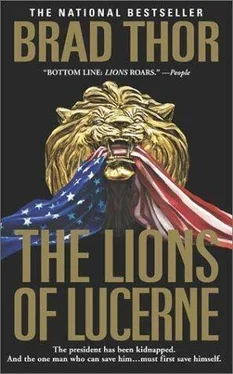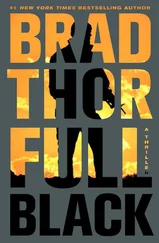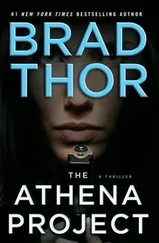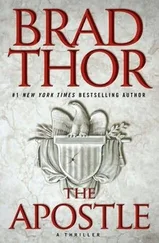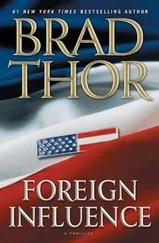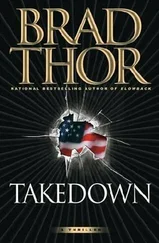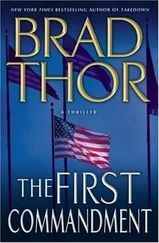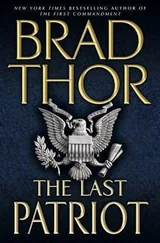Scot logged off of his home computer and signed off from the cyber café’s. He paid the earthy-crunchy chick at the coffee counter for his time on line and headed out the door.
On the pavement, he quickly scanned both directions for signs of anything that seemed out of place. Not noticing anything out of the ordinary, Scot walked down G Street to Twentieth, made a left, and headed north toward Dupont Circle. It had been less than ten hours since he had gotten out of a cab in almost the same neighborhood to meet with Natalie Sperando and André Martin. Now they were both dead and someone was trying to hang him for their murders. There could be only one reason: André had been one hundred percent on the money.
It began to rain again, and Scot popped into a small drugstore and bought an umbrella and an ugly tweed Totes hat. Using the weather to his advantage, he turned his collar up and pulled the hat down to conceal as much of his face as possible. After giving Natalie two hundred dollars last night, paying for his time and breakfast at the cyber café, the Metro pass, and now the hat and umbrella, Harvath was left with seven dollars.
He found an ATM across the street. He slid in his card and punched his code. He selected the withdraw-two-hundred-dollars option and waited. Instead of the thack, thack, thack sound of bills being metered out, he heard the printer printing a receipt; not a good sign. The screen flashed a benign message: Unable to complete transaction at this time. Please try again later.
Could they have frozen my account? Scot wondered. There’s no way they could have moved this fast. It had to be a coincidence. He put his ATM card back in his wallet and continued to head north toward Dupont Circle. When he reached M, he hailed a cab. He had the driver hang a left on Massachusetts Avenue and go through Embassy Row past the vice presidential mansion at the U.S. Naval Observatory. Convinced he wasn’t being followed, he then instructed the driver to change direction and come back along Florida Avenue to North Capitol Street and drop him at Union Station.
The fare was more than Harvath had in cash, but he had flagged a cab from a company he knew took plastic. He leaned forward through the partition to watch if his card would be accepted. It was. He had been overreacting about the cash machine. His accounts hadn’t been frozen. Not yet, at least.
Even though rush hour was over, Union Station was still crowded. Harvath kept his collar up and his hat pulled down close to his eyes. He tucked the umbrella under his arm and walked with his shoulders hunched up as if he was fighting off a chill from the cold air. His hands were shoved deep into the pockets of his trench coat. His right hand played with a key André Martin had slipped him as they shook hands good-bye last night at J.R.’s. “A copy of my insurance policy,” André had said. “I’ve always liked trains. How about you, Scot?” Those had been the last words André Martin would ever say to him.
As Harvath picked his way through the station toward the lockers, his eyes scanned the room for any surveillance. Normally, he would have hung back for a while to see if anyone was watching the locker, but there was no time for that. The longer he hung around, the better the chances were that the dragnet would swallow him.
Harvath eyeballed a couple potential exits he could sprint to if he was made and, with the small comfort that afforded, moved toward the bank of colored metal lockers. He looked at the key with its number sixty-eight and wondered if Martin had chosen it out of fondness for the old joke: “What’s a sixty-eight? It’s kind of like a sixty-nine except you do me and I’ll owe you one.” If there was anything within this locker that he could use, Harvath definitely would owe André one.
Moving down the row of lockers, Harvath stopped at number sixty-five and casually glanced away toward a set of monitors listing departures and arrivals. No one seemed to be watching him, so he moved to sixty-eight. He inserted the key and opened the locker. Inside was a manila envelope, which he withdrew and tucked inside his suit coat.
Keeping his head down, but scanning in every direction, Scot began to make his way toward the nearest exit. A crowd of noisy teenagers carrying suitcases and pillows, undoubtedly off on some school trip, cut across his path, and he had to slow his pace. When the mob passed, he noticed two men he hadn’t seen before standing less than ten feet away and staring right at him. They didn’t look friendly. Although they were dressed in street clothes, their eyes and their builds were not those of John Q. Public.
Scot’s thoughts were interrupted when the men began moving toward him. “Sir, can we speak with you a moment?” asked one.
Harvath turned in the other direction and began walking faster. He heard the men pick up their pace. Two seconds later, there was a faint metallic click that Harvath recognized right away as the sound of a blade locking into place. Whether it was a switchblade, a stiletto, or some other type of knife, the message was perfectly clear: he was not supposed to leave the train station alive. The use of a blade, rather than a pistol with a sound suppresser, was probably to make it look as if he was the victim of another D.C. mugging. Harvath now knew that these men were professionals and didn’t play for the good guys.
He could sense them getting closer. He didn’t dare turn around and look. From the direction they had approached, they had forced him into an area of the station that was less populated than the rest. While there were several groups of people around, they were not close enough to witness anything. Most likely, the men would come up from behind, slide the blade between his ribs, and hold him up as if he were a friend who’d had too much to drink. They would lead him over to a bench and leave him to die. Harvath’s only chance was to act fast.
Quickening his pace, he pretended he was trying to put some distance between himself and his pursuers. Just as the two men matched his stride, Harvath stumbled, his leg appearing to twist in an incredibly painful contortion. Seeing their chance, the two men moved in, but Scot was ready for them.
Just as he’d expected, the men had planned to engage in what operatives referred to as the friend-in-need scenario. As he began to fall, the first man reached out to grab him as the other man readied his blade.
In a move that seemed to defy gravity, Harvath halted his fall until he could grab hold of man number one, who was already reaching out for him. Locking his right hand around the man’s wrist, with his left he pinched with searing pain into the man’s elbow. He resumed his fall, dislocating his adversary’s arm and sending him sprawling across the floor with a powerful thrust of his legs.
Scot rolled in classic aikido fashion and came up onto his knees, just in time to parry the attack of the man with the knife. The blade was not anything as refined as a switchblade or a stiletto; it was an extremely dangerous knuckle knife. As Harvath dodged the man’s thrust, the edge of the metal knuckles caught him across the lower jaw and sent a white-hot lightning bolt of pain straight to his brain.
As the knife wielder prepared for another run, Scot noticed his accomplice with the dislocated arm was moving off toward the exit. As quickly as he made this realization, the man with the knife came at him again. This time he held it in a manner that suggested his plan was to stab in a downward motion, and Scot readied himself, still with no time to get off his knees. It was amazing that no one had seen what was happening and called for the police.
Scot focused on the blade and prepared for the way in which the man was telegraphing his attack. Then, everything changed. Suddenly, the man had another knife in his left hand, and it came slicing across from left to right. All of Scot’s attention had been focused on the man’s right hand. Stupid. He should have known better.
Читать дальше
